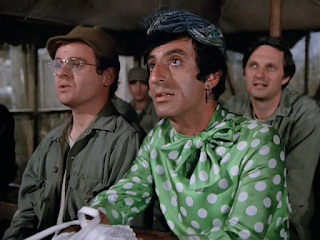Saturday, February 26, 2022
If the events of this past week tell us anything, it's that there are advantages to being in NATO. Ukraine is being picked apart precisely because it's not a part of the organization. And if, for example, Lithuania, Latvia, and Estonia were not part of the alliance right now, chances are good that they would have come under similar pressure/intimidation/attack from Moscow.
 |
| Tartu, Estonia, 1998 |
My sense, moreover, is that in both western and eastern Europe, the current crisis has likely driven home some of the importance of being in the alliance. I imagine that today there are more people in, say, Warsaw who are relieved their country is part of NATO than was the case six months ago.
The weak link in NATO is the United States. Roughly half the electorate voted, in 2016 and 2020, for a presidential candidate who is hostile to the idea of working with allies, and toward NATO in particular. While the GOP was, during the Cold War and its immediate aftermath, typically more hawkish than the Democrats when it came to foreign commitments, over the past six years the party has become much more isolationist.
Talking in class this week about the events in Russia and Ukraine, I was struck by how arcane these references to the North Atlantic Treaty Organization must sound. Most of the students in my 100-level class were born 10-15 years after the Cold War ended. I was born 16 years after the Korean War ended, and to me that conflict meant little more than M*A*S*H.
What does something like NATO mean to them? You might as well be talking about the Russo-Ottoman War of 1877-78.
Don't get me wrong, I personally think NATO has an invaluable presence in both western and eastern Europe. Not only because of its deterrence factor vis-a-vis Russia but also due to its integrating influence: countries like Turkey and Greece, Hungary and Romania, and Kosovo and Serbia are less likely to get into conflict with one another if they're both in NATO.
It's not a very controversial point: one lesson from the 20th century is that wars in Europe end up involving the United States, isolationism notwithstanding. So, it's probably better to work on prevention, as opposed to sitting things out until they get out of hand. If the US were to pull out of NATO, as some politicians in this country would prefer, the alliance would fall apart. And this, I think, would be disastrous for the future of Europe and the US. And yes, the US would eventually be pulled into whatever was going on.
For someone in the US who can't find Ukraine on a map and has no experience with international history, however, it's not necessarily apparent why organizations like NATO exist. It might be easy to think that the money which goes, in part, to stationing American forces in Europe should be spent elsewhere, that Europeans should deal with Europe's problems on their own.
How to make the case for NATO in a way that doesn't sound like an arcane history lesson? Americans can no longer rely on bipartisan support for anything, and I wouldn't be at all surprised if the future involvement of the US in NATO, and the scale of the involvement, were to become campaign issues this fall, and in 2024.
People who think NATO is an institution worth saving and developing further will need to learn how to make this point in a way that makes sense to people. I don't think we can take continued support for the alliance for granted in this country.
***
Also see:
***
More commentary, photos, and links can be found in the Borderlands Lounge.



No comments:
Post a Comment